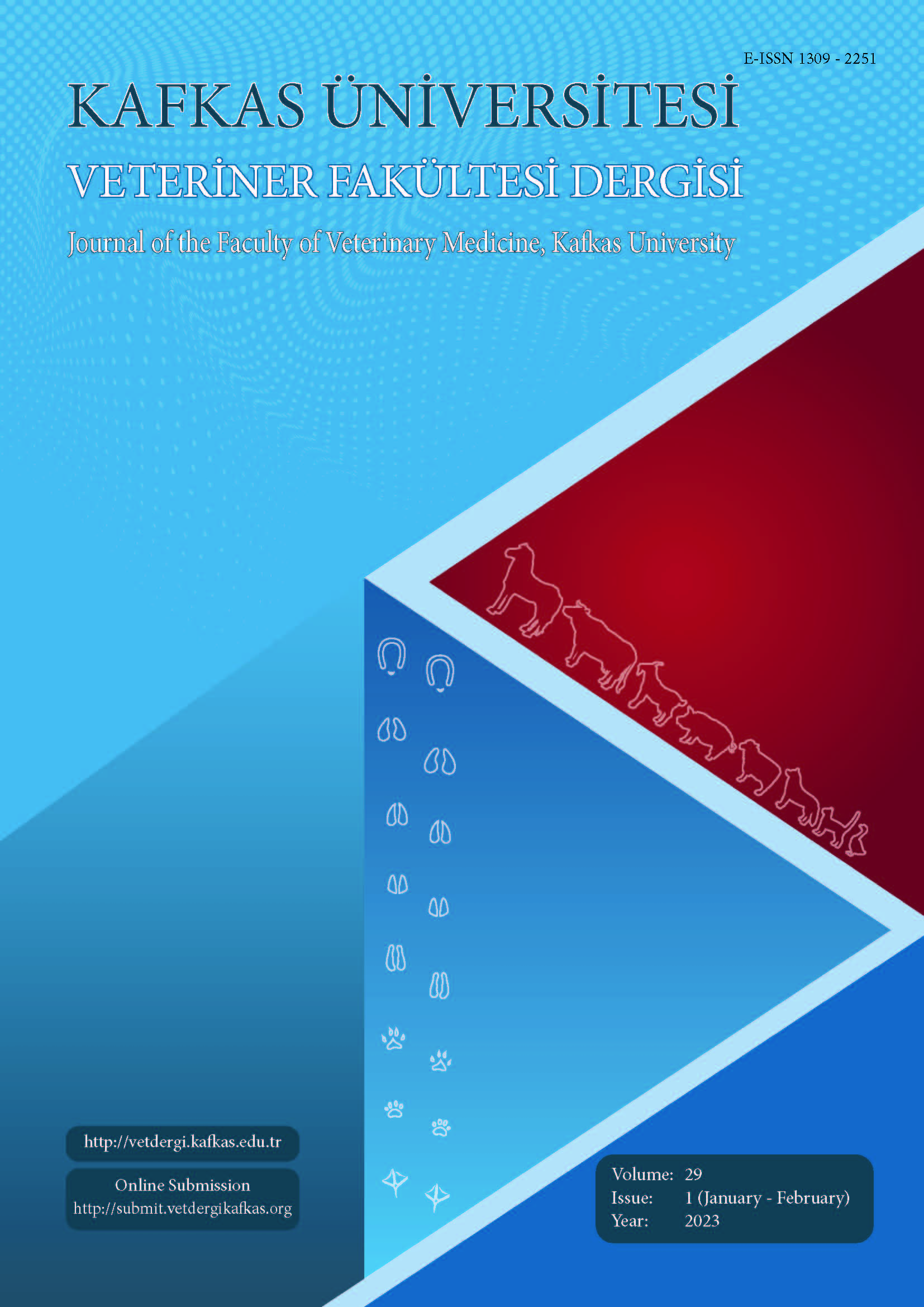
This journal is licensed under a Creative Commons Attribution-NonCommercial 4.0 International License
Kafkas Üniversitesi Veteriner Fakültesi Dergisi
2023 , Vol 29 , Issue 1
The Quinolone Resistance Genes in the Bacteriophage DNA Fractions in the Healthy Calf Stool Samples Via qPCR
1Republic of Türkiye, the Ministry of Agriculture and Forestry, Veterinary Control Central Research Institute, TR-06020 Etlik, Ankara - TÜRKİYE2Kirklareli University, Faculty of Medicine, Medical Microbiology Department, TR-39000, Kırklareli - TÜRKİYE
3Karabük University, Faculty of Medicine, Medical Microbiology Department, TR-78050 Karabük - TÜRKİYE
4Harran University, Faculty of Veterinary, Genetics Department, TR- 63200, Eyyübiye, Şanlıurfa - TÜRKİYE DOI : 10.9775/kvfd.2022.28480 The One Health approach shows that people, animals, plants, and environmental factors can affect each other. Phages are one of the mobile genetic elements. Quinolones are a critical group of antibiotics for both human and animal health and monitoring their antimicrobial resistance is very important. The aim of the study is to determine the frequency of the quinolone resistance gene in bacteriophage DNA fractions obtained from healthy calf stool samples. In our study, 50 samples from 6-9 months old calves, which were found to be healthy and not treated with any group of antibiotics in Sanlıurfa province, were included. DNA isolation was made from phage lysates of stool samples and specific primers were used qnrA, qnrB and qnrS genes. qPCR was performed on LightCycler480. Despite not receiving any antibiotic treatment, qnrB was the most detected gene among the phage DNA fractions detected in 11 calves. While qnrA, qnrB and qnrS quinolone resistance genes were detected together in one sample, qnrB and qnrS resistance genes were found together in two samples. Our data, obtained from the study in Türkiye to search for antimicrobial resistance genes in phage fractions, showed the importance of the One Health approach and determined that it was highly effective in quinolone resistance gene shedding in healthy calves that had never been treated with antibiotics. It has been concluded that in empirical treatment with quinolone, attention should be paid to all living things and unconscious antibiotic use may cause the spread of resistance genes more than expected. Keywords : Antibiotic resistance genes, Bacteriophage, qPCR, Quinolone











